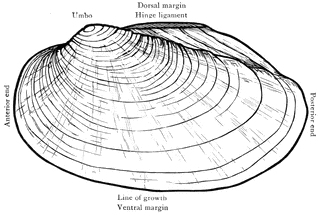README
clam is a shell utility. It will run templated commands. Note: This library is
in development, may be buggy and the API might change, use at your own risk.


Examples
You can find most of the example as ready to run files under
examples.
A simple command
package main
import (
"log"
"github.com/miku/clam"
)
func main() {
err := clam.Run("echo Hello {{ name }}", clam.Map{"name": "World"})
if err != nil {
log.Fatal(err)
}
}
Output would be:
$ go run examples/simple/main.go
2015/07/01 02:37:36 echo Hello World
Hello World
Command with pipe
Running with a pipe and a temporary output:
package main
import "github.com/miku/clam"
func main() {
clam.Run("echo A,B | cut -d, -f2 > {{ output }}", clam.Map{})
}
Running the above will create a temporary file:
$ go run examples/pipe/main.go
2015/07/01 02:41:11 echo A,B | cut -d, -f2 > /tmp/clam-370786565
$ cat /tmp/clam-370786565
B
Catching the output
Running with a pipe and a temporary output, this time, we want the filename returned to our program.
package main
import (
"log"
"github.com/miku/clam"
)
func main() {
output, _ := clam.RunOutput("echo A,B | cut -d, -f2 > {{ output }}", clam.Map{})
log.Printf("find output at %s", output)
}
Running the above will create a temporary file:
$ go run examples/withoutput/main.go
2015/07/01 02:46:55 echo A,B | cut -d, -f2 > /tmp/clam-558261601
2015/07/01 02:46:55 find output at /tmp/clam-558261601
The output can be returned as *os.File and *bufio.Reader as well with
clam.RunFile and clam.RunReader, respectively.
The output parameter can also be passed:
package main
import "github.com/miku/clam"
func main() {
fn := "/tmp/zzzz"
clam.Run("echo Hello >> {{ output }}", clam.Map{"output": fn})
clam.Run("echo World >> {{ output }}", clam.Map{"output": fn})
}
This will simply append to the given file:
$ go run examples/append/main.go
2015/07/01 09:11:22 echo Hello >> /tmp/zzzz
2015/07/01 09:11:22 echo World >> /tmp/zzzz
$ cat /tmp/zzzz
Hello
World
Timeouts
Define a timeout in runner:
package main
import (
"log"
"time"
"github.com/miku/clam"
)
func main() {
r := clam.NewRunnerTimeout(50 * time.Millisecond)
err := r.Run("sleep 1", clam.Map{})
if err != nil {
log.Fatal(err)
}
}
This will kill the command process, if it won't exit in time:
$ go run examples/timeout/main.go
2015/07/01 10:53:21 sleep 1
2015/07/01 10:53:21 timed out: sleep 1
exit status 1
Absorb streams
You can use a buffer to directly absorb stdout or strerr:
package main
import (
"bytes"
"log"
"github.com/miku/clam"
)
func main() {
buf := new(bytes.Buffer)
r := clam.Runner{Stdout: buf}
_ = r.Run("echo Hello,World,! | awk -F, '{print $2}'", clam.Map{})
log.Print(buf.String())
}
Run:
$ go run examples/buffer/main.go
2015/07/01 15:42:09 echo Hello,World,! | awk -F, '{print $2}'
2015/07/01 15:42:09 World
 Documentation
¶
Documentation
¶
